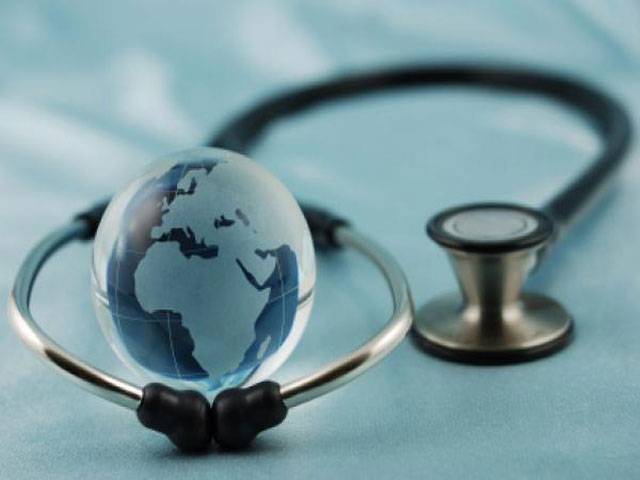KARACHI – The World Health Day is being marked on April 7 (today) across the globe to highlight the significance for governments to invest in the key health sector.
The focus of this year is on hypertensions (blood pressure) that have been known as the silent killers.
“It is a shame that Iran and Bangladesh had successfully eradicated polio with six and four rounds respectively while new polio cases are still being reported in Pakistan despite having over 70 rounds of vaccination,” said Pakistan Medical Association (Centre) Secretary General Dr Mirza Ali Azhar on Saturday.
According to the World health Organisation, 40 percent of adults aged 25 and over have raised blood pressure and 17.3 million people die from cardiovascular diseases in the world. With the kind of stress factors that are an unfortunate part of human existence in Pakistan, the implications of these statistics cannot be over-emphasised, he said.
He said that the PMA and its network of branches across the country have been actively lobbying at all possible tiers to improve the healthcare delivery mechanism in the country which, beyond doubt, was going from bad to worse by the passing day.
“At one level, it suffers because not enough funds are allocated to the sector. Subsequent governments have been reminded time and time again that annual allocations for key social sector, including health, have been alarmingly low, causing serious problems to the masses and an equally serious setback to efforts to achieve the Millennium Development Goals (MDGs) to which the Government of Pakistan is a signatory. The WHO has recommended an expenditure of six per cent of national GDP on health. In Pakistan, less then two percent is the norm, and the results are there for all to see. But that is only half the story. At another level, the problem lies in the manner of expenditure of these precious funds. Vested interest lobbies active in the arena represent the biggest hurdle in the way of any effective execution of whatever funds the health sector gets,” he said.
The PMA Annual Health Report, which has becomes a standard document on the health of the nation, continues to shed light on the status of the healthcare delivery system in the country, but there seem to be few takers. Year after year, the PMA Report has been highlighting the simple fact that Public Health is a victim of misplaced priorities and widespread corruption. It’s time the government realized that what the country needs is an efficient primary and emergency healthcare system and provision of basic facilities; not lavish expenditure on tertiary care centers and elite medical towers.
Commenting upon the government measures for health uplift, it said that in a country where 70 per cent of the population has no access to primary and emergency care, 1.2 million people die of water-borne diseases annually, a child dies of some disease every minute, and 70 women die of pregnancy-related complications every day, the government has no justification to spend money on lavish projects.
“It is a shame that Iran and Bangladesh had successfully eradicated polio with six and four rounds respectively, while new polio cases are still being reported in Pakistan despite having over 70 rounds of vaccination. Ironically, ‘revolution’ has been the buzz word in Pakistan politics as the nation gets ready to go to the polls, and yet no political party has focused on the key health sector in their respective manifestos. They have touched on health issues more as a formality than anything else. They have no plans and, indeed, there are no commitments. Pakistan Medical Association, being the sole representative body of medical practitioners in the country, once again urges political parties, their leaders and all the other stakeholders to wake up to the grave situation and do something for the masses in whose name they run – and want to run – the country. All health indicators are pathetically low to the point of being unacceptable in this day and age.”
PMA demands that, as recommended by the WHO, six percent of GDP must be spent on health and expenditure must be monitored to ensure transparency. In the absence of such steps, the teeming millions of Pakistan will continue to suffer for no fault of their own.
Sunday, May 19, 2024
Pak lags behind Iran, B’desh in health sector

Sports & Genocide
May 18, 2024
Healing AJK
May 18, 2024
A New World Order
May 18, 2024
Tobacco Toll
May 17, 2024
Rushed Reforms
May 17, 2024
Continuing Narrative of Nakba
May 18, 2024
Teacher Struggles
May 18, 2024
No Filers out of Reach
May 18, 2024
Hoax of Inflation Coming Down
May 17, 2024
Rising Inflation
May 17, 2024
ePaper - Nawaiwaqt
Advertisement
Nawaiwaqt Group | Copyright © 2024





